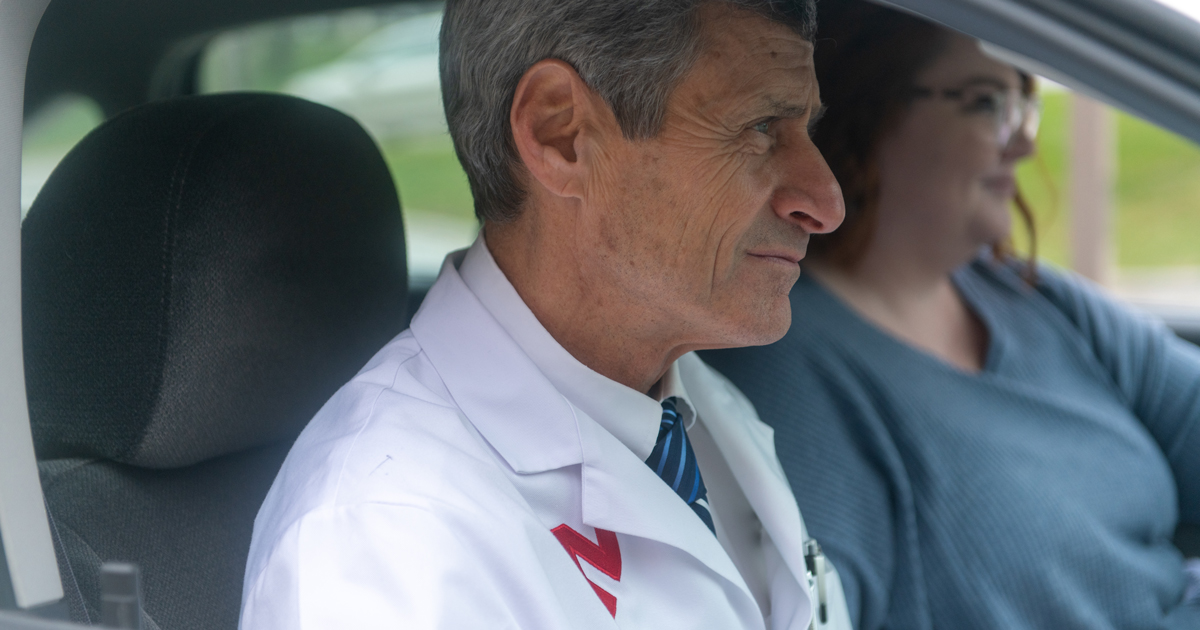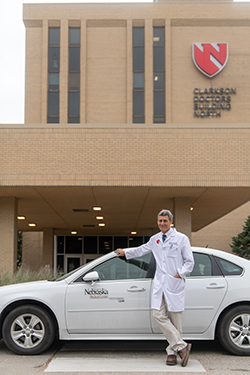How car sensors monitor Alzheimer's disease

It's an unobtrusive way to track health, disease and how well a treatment works. And it's probably something you've used before: a car.
University of Nebraska Medical Center researchers use real-world behavior to potentially detect diseases like Alzheimer's disease. "How diseases play out in the real world is important," explains neurologist Matthew Rizzo, MD. "We have clinical tools to diagnose a disease, like blood tests, physical exams, patient histories and thinking tests. But sometimes there's a mismatch between what you see in the clinic and what goes on in the real world."
Driving data may give "boots-on-the-ground" evidence of real-world brain health. "Driving is a marvelous laboratory for the brain," says Dr. Rizzo. "We call it ‘brain in the wild.'"

Using driving habits and patterns to predict a disease – before a clinical test – could give patients precious time for intervention and treatment. Alzheimer's disease can start 15 to 20 years before someone is diagnosed. By the time a doctor can identify the disease in the clinic, it's often too advanced to treat. So the faster you catch Alzheimer's, the better.
Dr. Rizzo is joined by neurology researcher Jennifer Merickel, PhD, and their research team at the Mind & Brain Health Labs. The team places accelerometers, pedal detectors, cameras and other inconspicuous sensors into a participant's car. The sensors send driving data to the lab for analysis.
"Looking at these measurements over weeks and years, you can see how someone's behaviors change," explains Dr. Merickel. "Which is exactly what you need to know in someone who's declining." The research team uses these patterns to make informed inferences about a person's disease. The data can also show how a drug or therapy helps improve a person's life space and real- life experience.
"Alzheimer's changes a person's ability to act, decide and respond. It changes their ability to monitor themselves and their surroundings, as well as their situational and self-awareness," says Dr. Rizzo.
For instance, a person with Alzheimer's may experience delayed reaction times to upcoming obstacles or traffic signals. With red flags like jamming the brakes or sudden swerves, along with video recordings of a person's reactions, the team can monitor a person's driving abilities over time. The team uses a machine-learning approach to sift through the firehose of data.
In time, Dr. Rizzo and Dr. Merickel hope to see if they can use a person's vehicle to monitor the progression of several diseases, including Parkinson's disease, diabetes and rheumatoid arthritis.
Email the Mind & Brain Health Labs at mbhl@unmc.edu or call 402.559.6870. See this and other active neurology studies at NebraskaMed.com/Mind-Research.





